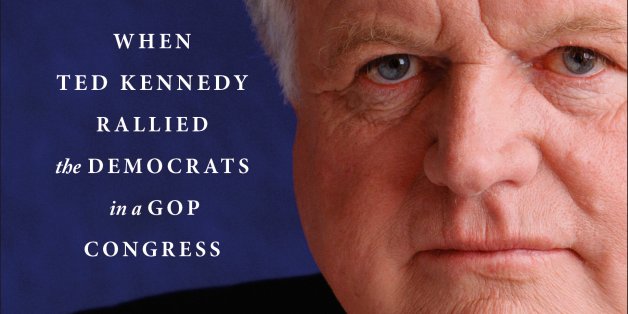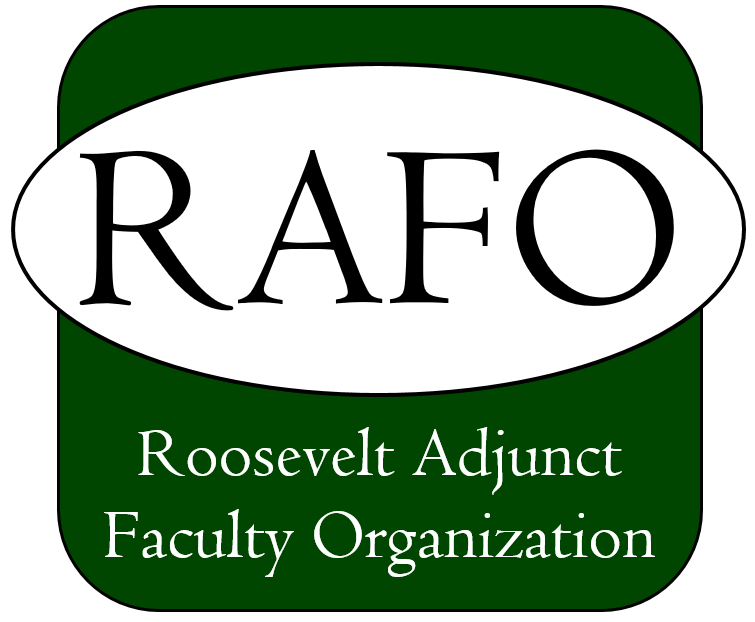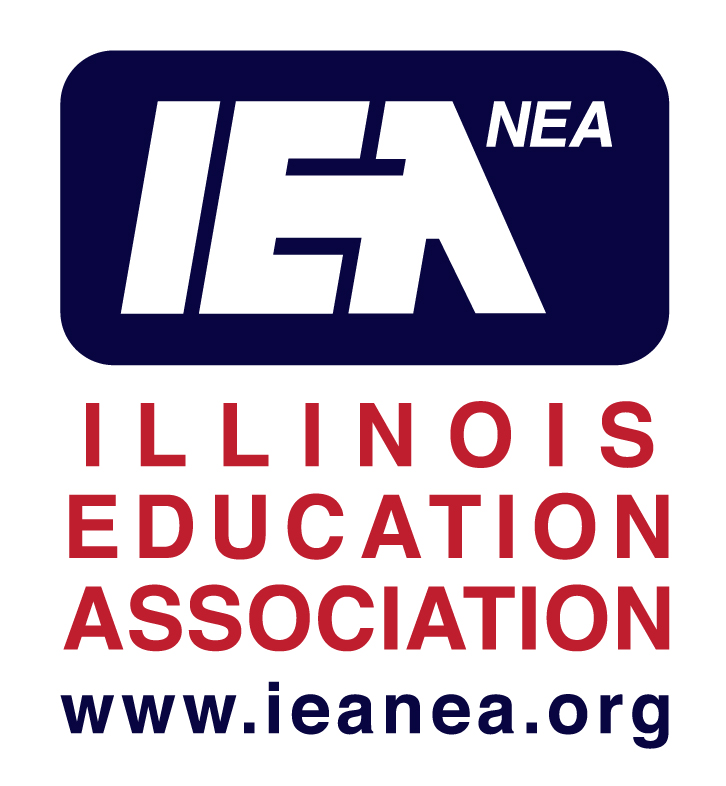Dear RAFO members,
As this tumultuous school year winds down, RAFO held its regular semester meeting with President Malekzadeh and Provost Becker. Using the questions that RAFO members submitted (thank you!), we received updates on what can properly be called the restructuring of Roosevelt in the wake of its budget crisis and the various pressures RU (along with most other universities) faces in the coming years. This is what RAFO knows as of this moment:
- Roosevelt will look very different in 2-3 years. Its share of University Center has already been sold. The Gage Building will likely be put on the market as all programs at Gage will be moved to the Auditorium and Wabash buildings by August. Several floors of dormitories will be converted to offices, and programs will be consolidated and eliminated to reflect a school with an enrollment goal of 5,000 students rather than 8,000+ students.
- Ironically, this downsizing will mean that RU will be leaning on adjuncts more than they already have. A program of early retirement packages being offered to tenured professors and long-time administrators will be followed at the end of the school year by reductions in full-time teacher positions that will not be filled until the budget and enrollment stabilizes. What this should mean for RAFO members is that sections may open up for the 2017-18 semester.
- Further changes will be coming, including Monday-Wednesday-Friday courses for undergraduates (not expected to start until Fall 2018 at the earliest), online classes that will become 8- or 16- week sessions, more evening/Saturday courses (assuming adult and transfer enrollments rise), and eliminated/restructured majors and programs (concurrent with a review and revamping of general education requirements by the Fall of 2018).
All of this is in RAFO’s minds as we begin negotiations on a new contract this summer. RAFO was (and remains) willing to extend the current contract for a year, but the administration insisted that any changes to the contract be negotiated with the full contract in mind. RAFO has been ready to negotiate, so we will head to the table and keep you up to date on the progress. In exchange, we continue to ask that you communicate with us so we are clear as to what you want this contract to represent for you and your work at Roosevelt.
For those of you who wish to keep track of all developments, RAFO recommends you read the daily Broadcast. Additionally, all Senate meetings (and many other governance meetings such as AAUP) are accessible via the Zoom web app and program, available to all adjuncts. Finally, opportunities exist to work with RAFO to stay updated and contribute as the changes ensue. (There will be more on that final point in future communications.)
If you have a class, good luck with the rest of your semester. If you wish to have a class this fall, tell your department chair NOW so you are included in their planning. As always, stay in touch with RAFO. This will be a working summer.
In solidarity,
Joseph Fedorko and the Officers of RAFO, IEA/NEA
RAFO Members,
The Executive Committee invites you to join us for our Spring Membership Meeting, on Thursday, April 6, from 4 - 6 pm in room 825 of the Auditorium Theatre building. We will discuss Roosevelt's restructuring, its impact on adjuncts in the 2017-18 school year, and our upcoming contract negotiations. Light refreshments will be served. We want to hear from you and can use your help - find out how on April 6.
In solidarity,
The Executive Committee of RAFO
P.S. "Like" us on Facebook & Follow us on Twitter to stay up-to-date with news and events!

Lion of the Senate: When Ted Kennedy Rallied the Democrats in a GOP Congress
Nick Littlefield and David Nexon (New York: Simon & Schuster, 2015)
Reviewed by: B. J. Smothers
History never exactly repeats itself. There’s always a little wrinkle that makes the difference. In 1994, when Newt Gingrich rose to power, he marked his territory by orchestrating the Contract with America, threatening to eviscerate New Deal and Great Society legislation. Six weeks before the 1994 election, he gathered Republicans on the steps of the Capitol (as Reagan had done to celebrate passage of the Reagan tax cut) to introduce Gingrich, Dick Armey, and political adviser Frank Luntz’s Contract with America and to launch the next assault on progressivism. In the subsequent GOP rout, after forty years of being in the minority, Republicans had flipped that position in the House, 228–207, and in the Senate, 52–48. To make matters even worse, two senators and several House Democrats defected to the Republican Party after the election. Democrats were stunned, deflated, and President Clinton was promising to work with a Newt Gingrich controlled Congress. But then, there was the indomitable Ted Kennedy to act as a shield between U.S. citizens in need and the powerful. The means by which this contest played out is detailed in Lion of the Senate.
The Chronicle of Higher Education is now available from the library with any roosevelt.edu account at Chronicle.com. Any user who creates an account with their @roosevelt.edu e-mail address will be able to access premium content from any location or device.
If you have already created an account at Chronicle.com with your @roosevelt.edu e-mail address, that account will automatically link to the site license so you will not need to create a new one. Please contact Robin Hofstetter with any questions about creating your account.
In an Inside Higher Ed article entitled “The Right Not to Be Recorded,” the student group supporting the student who was suspended for recording an instructor’s class comments without the instructor’s consent claims that the college in question “is making a clear statement that it doesn't give a damn about its students and is completely in the pocket of the teachers' union.”
Which made me wonder: is this a chicken vs. egg problem? Which came first: teachers’ unions or academic freedom?
I was a little discouraged to read this remark – to me it suggests that “academic freedom” means only the rights of instructors to say whatever they want, whether it pertains to the class at hand or not. And those who choose to oppose those comments, be they students or the college, do so at their own peril, risking the wrath of the faculty union. (Reminds me of a certain executive authority of a certain pre-eminent democracy, but that’s a post for another time.)
I remember when there was no such thing as higher education faculty unions. Faculty were professionals, spending years gaining their to interact with expertise on a given subject in both the classroom as well as in research. “Academic freedom” meant the freedom enjoyed by both students and instructors in the classroom, that both parties could challenge one another and still respect one another, without some third party (a college, a state, a political or economic point of view) trying to impose its agenda upon them.
From this adjunct faculty union member’s point of view, the very reason faculty unions came into being was, among other reasons, the best means available to keep third parties out of the classroom; student – teacher relationships demand nothing less. When students or teachers unilaterally decide to make their classroom public without considering how that action will affect them, guess who wins? Not students. Not teachers. Only the outsiders, imposing an agenda outside the scope of the class.
So I’m curious to know what you think. What’s the independent variable here? Does academic freedom make teachers’ unions possible? Or do the unions make academic freedom possible? Or is this a genuine chicken/egg dilemma?
I look forward to hearing from you.
Subcategories
Page 31 of 32

